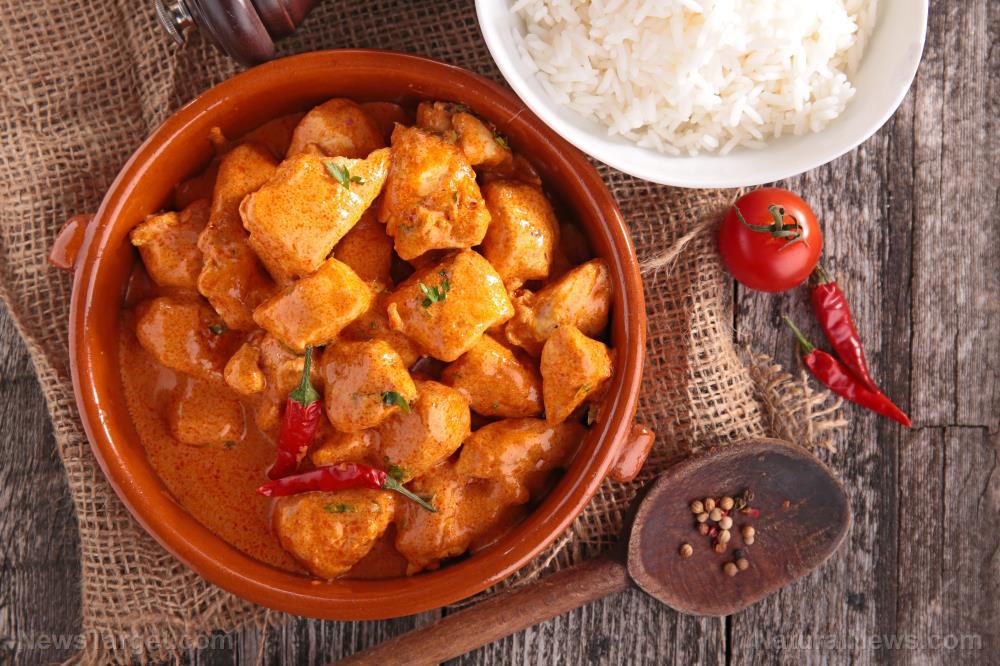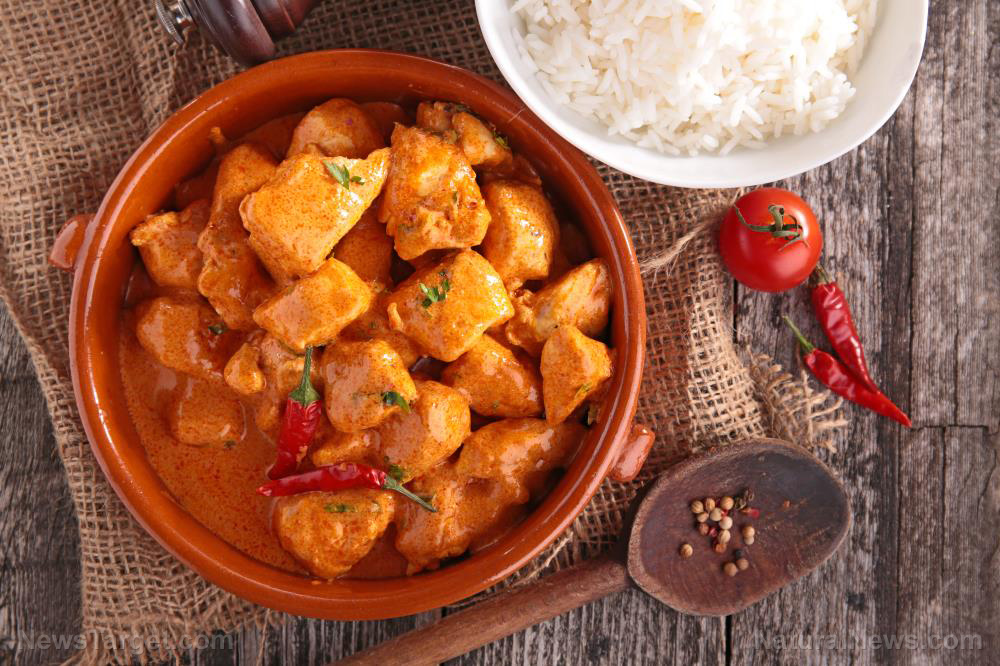Learn about brain health and nootropics to boost brain function
The amazing power of curry: Why eating this dish is so good for your health


(Natural News) Once just a staple in Indian homes, curry has become a worldwide sensation in recent years. From England to Japan — the world is in love with curry, and there are easily dozens (if not hundreds) of ways to prepare it. From its distinct aroma to its unique flavor, the dish has truly found a home in the hearts of culinary lovers.
What is even more amazing about curry is that it has a multitude of health benefits. A study published in Nutrition Journal found that curry can greatly benefit cardiovascular health.
Curry helps increase blood flow
Researchers asked 14 healthy male subjects to eat either a spice-free control meal or a 500-calorie curry meal. The latter, in particular, consisted of 180 grams of curry or control and 200 grams of rice. Before the activity, researchers obtained initial data about the participants’ blood vessel profiles. They also got the same data an hour after eating the curry meal.
Based on the results, researchers found that those who ate a curry-free meal had a significant decrease in blood flow. In contrast, they found that participants who ate a single serving of curry had an increase in blood flow. From this, the researchers concluded that the consumption of curry prevented the inner lining of the blood vessels (endothelium) from constricting, thereby, increasing blood flow in the cardiovascular system. Moreover, they attributed curry’s effect on blood flow to its ingredients — all of which are known antioxidants.
This makes curry a great addition to diets, especially for those at risk of atherosclerosis.
| Discover how to prevent and reverse heart disease (and other cardio related events) with this free ebook: Written by popular Natural News writer Vicki Batt, this book includes everything you need to know about preventing heart disease, reversing hypertension, and nurturing your cardiac health without medication. Learn More. |
Atherosclerosis is a disease that occurs when the blood vessels collect fats, cholesterol, and other substances in the walls of the artery. As a consequence, there is a decrease in blood flow in the blood vessels. Although arteries are flexible, its elasticity decreases due to the build-up of plaque in its walls. Generally, atherosclerosis is considered a heart ailment, but it can affect any artery in the body. Curry has the potential to address endothelial dysfunction before it can become atherosclerosis. By adding curry spice in the diet, the effects of the high-fat diet Americans usually feast on can be mitigated.
Some of the spices in curry have also been heavily studied. Turmeric — which gives curry its distinct color — has been found to produce similar cardiovascular health benefits to exercise. Garlic, another ingredient in curry, has also shown capabilities of clearing away built-up plaque in arteries, with several studies confirming its efficacy in lowering blood pressure in hypertensive patients. (Related: Ancient curry spice boosts innate immune response to fight infection and chronic disease.)
Other health benefits of curry
Aside from clearing up plaque in the arteries and improving blood flow, curry offers even more health benefits.
- It improves cognitive function. Curry is packed with turmeric, which contains an organic compound called curcumin. This compound is well-known for its ability to stimulate the immune system and eliminate excess plaque in neural pathways. In effect, it can decrease the risk of cognitive decline and the potential to acquire Alzheimer’s disease.
- It encourages bone formation. The compounds in curry powder have shown promise in speeding up bone re-growth, connectivity, and repair, as well as potentially reducing bone loss by up to 50 percent.
- It reduces inflammation. Curry powder also has anti-inflammatory properties. This is especially beneficial in managing pain and inflammation brought about by rheumatoid arthritis. In addition, curry’s analgesic (pain relief) properties are said to be comparable to ibuprofen.
- It can prevent cancer. In a study published in The Journal f Nutritional Biochemistry, researchers found that curcumin can prevent the formation of glioblastomas – a type of cancer that develops in the brain.
Read more about curry and its health benefits at Turmeric.news.
Sources include:
Click here to view full article